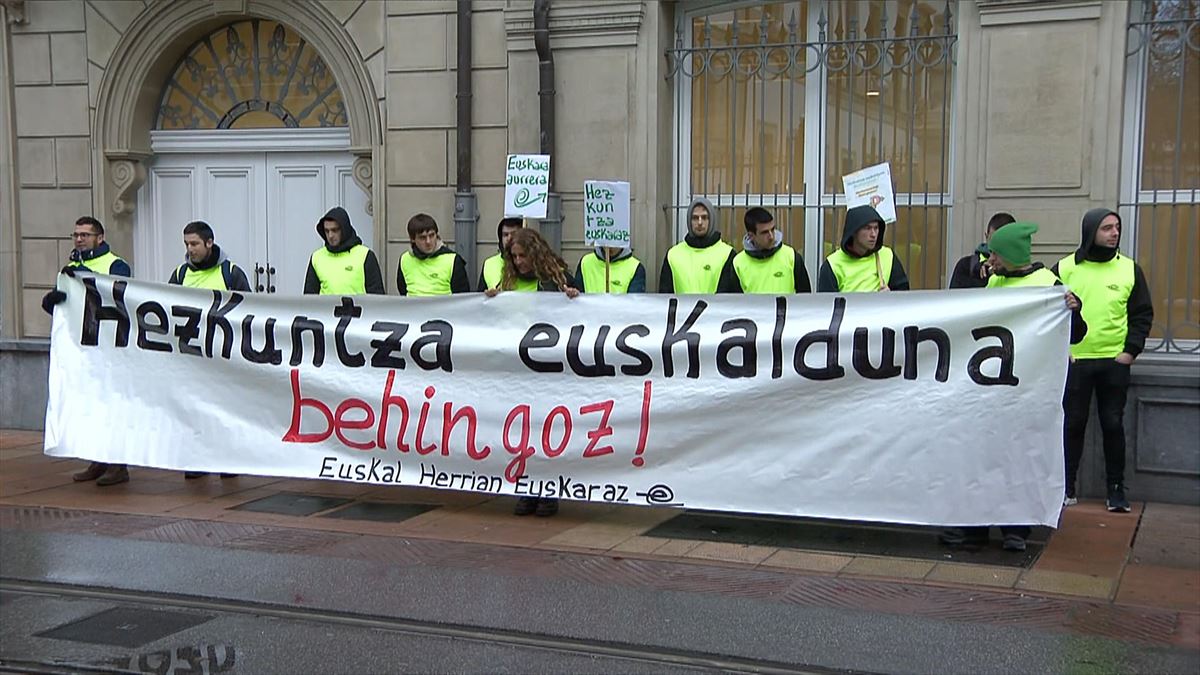The text has continued with votes in favor of the PNV and the PSE-EE, while the rest of the opposition groups have voted against.
The Basque Parliament finally approved on Thursday one of the most important laws of this legislature; the Law of education, a standard that will dominate the Basque education system for the next twenty years. As expected, the text passed with the sole support of PNV and PSE-EE, as the rest of the opposition groups (EH Bildu, Elkarrekin Podemos-IU, PP, Ciudadanos and Vox) voted against.
During the parliamentary debate, the opposition showed its rejection of the rule, while the two parties supporting the Basque government defended it.
The only parliamentarian from CitizensJosé Manuel Gil has pointed out that this is a “bad” education law, as the previous one was, in his opinion, “infinitely better.” He added that it is “contaminated” by EH Bildu’s amendments, and therefore believes that “it would have been better to start a new process.”
For her part, she is the only parliamentarian out Vox In the Basque Parliament, Amaia Martínez has declared that this is the coalition government’s education law, “hers alone”, even though PNV and PSE-EE represent just over half of the Basque population.
Carmelo Barrio (PP) has emphasized that it will be a “bad” and “negative” law, far from real educational needs. According to him, this only guarantees success for Basque students and students with financial resources. “It is not an education law, it is a language policy law,” he emphasized.
According to the spokesperson of the parliamentary group of Elkarrekin Podemos-IULook, Gorrotxategi, the opportunity to ‘improve’ the Basque education system has been lost because, according to him, it perpetuates privatization and segregation. In this sense, he has denounced that the Basque Autonomous Community has the “most privatized” education system in Europe.
The parliamentarian María Jesús San José (PSE-EE) has defended that, thanks to the socialists, it will be an education law, and “not a national construction law.”
By EH BilduIkoitz Arrese has spoken of a “missed opportunity” and “failure” of the coalition government because it has only made progress with the votes of the PNV and the PSE-EE. Likewise, he has criticized the law because, in his view, an opportunity to pass it with greater consensus has been lost.
Gorka Álvarez, on behalf of the parliamentary group of PNV, said that this Thursday is “a very important day” for the Basque education system, because the new law “facilitates the way to face the educational challenges of the coming decades.” He further replied to EH Bildu that this law has been agreed with them, because they have agreed on a total of 74 amendments in this final phase.
The standard culminates in a long negotiation process, a path of light and shadow. It started its journey in March 2022 and was qualified as “a historic agreement”agreed by 90% of the Basque Chamber (PNV, PSE-EE, EH Bildu and Elkarrekin Podemos-IU). PP, Ciudadanos and Vox opposed the standard from the start, believing it was intended as a tool for nation-building.
As processing progressed, the text was changed lose support. The first group to withdraw was Elkarrekin Podemos-IU, which in April last year denounced that the project was intended to “protect universal agreement” and claimed there was a “lack of commitment to ending segregation ”. EH Bildu’s ‘no’ came a month ago, after he considered as ‘insurmountable’ the crack that the groups that make up the Basque government had opened by including the language models A, B and D in the prologue of the standard . According to these opposition groups, the standard protects “outdated language models” and does not prioritize the public system.
Kontseilua, Eskola Publikoaz Harro and other officers have also expressed their rejection of the law. Exactly, Euskal Herrian Euskaraz and Euskal Eskola Publikoaz Harro met this Thursday in front of the Basque Parliament.


Source: EITB
I am Ida Scott, a journalist and content author with a passion for uncovering the truth. I have been writing professionally for Today Times Live since 2020 and specialize in political news. My career began when I was just 17; I had already developed a knack for research and an eye for detail which made me stand out from my peers.



